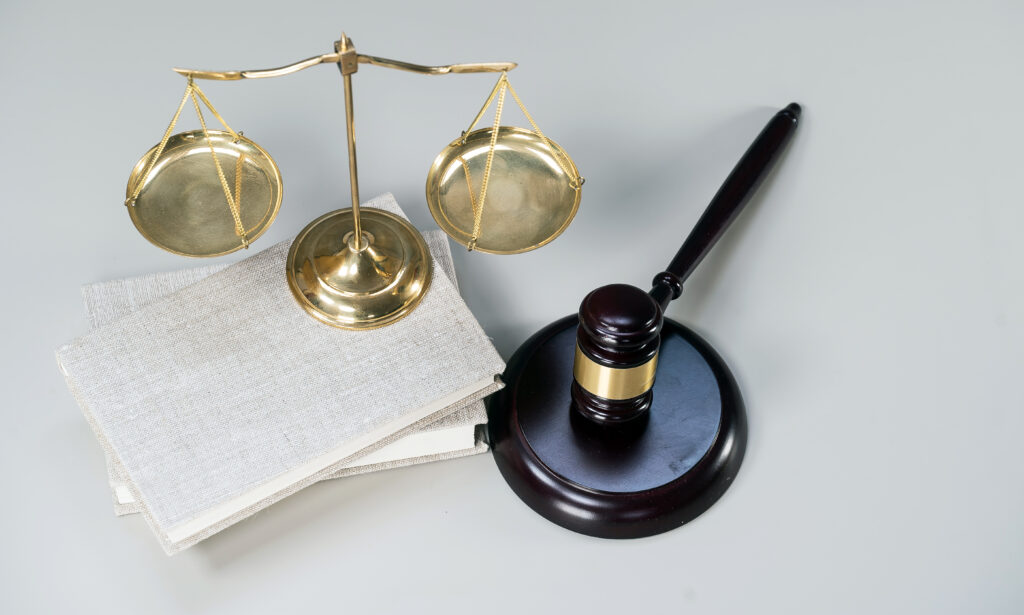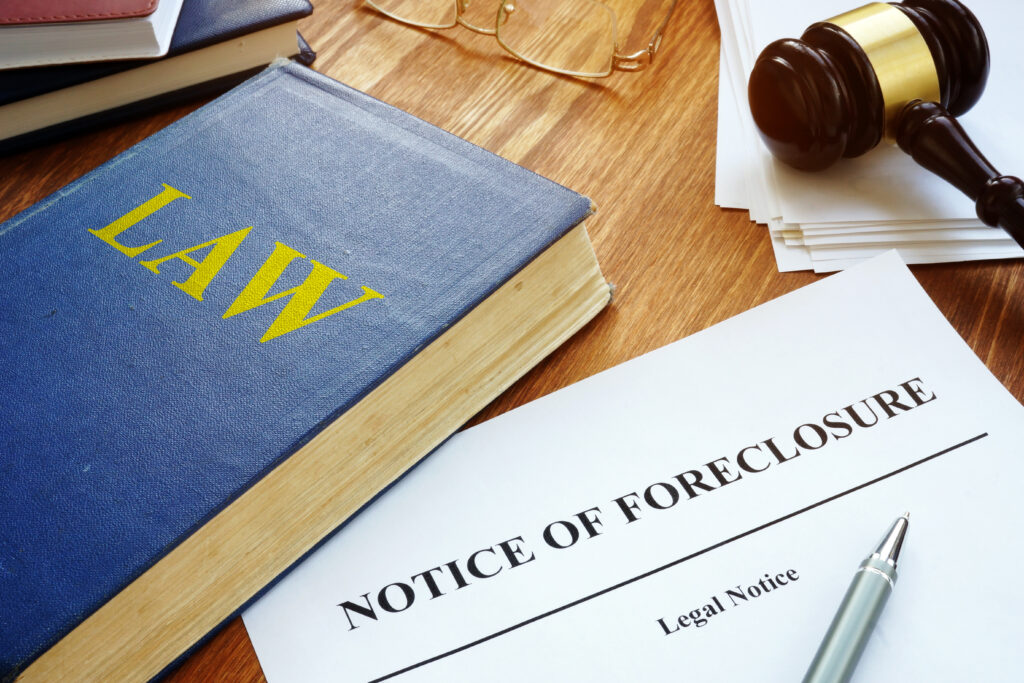
The relationship with your lawyer is important when you find yourself amid a legal case, particularly a personal injury case. This connection can significantly impact the outcome of your case and your overall experience throughout the legal process. However, there may come a time when you feel that your current legal representation isn't meeting your needs or expectations. It's crucial to understand that you can change your attorney at any point during your case.
This right is protected by law, ensuring you can seek representation that best aligns with your needs and interests. While you have this freedom, it's important to note that changing lawyers isn't always straightforward and can have various implications for your case. In personal injury cases, where sensitive personal information and medical details are often involved, and the emotional stakes can be high, the decision to change lawyers should be carefully considered. If you're in Waukegan, consulting a Waukegan personal injury lawyer can help you navigate this process with the expertise and understanding necessary for your situation.
Waukegan Personal Injury Guide
Reasons for Changing Lawyers
You might contemplate changing your lawyer during a personal injury case for numerous reasons. Communication issues often top the list. It may be time to consider a change if your attorney is consistently unresponsive, fails to keep you updated on your case progress, or doesn't explain legal matters in a way you can understand. Lack of progress is another common concern. While personal injury cases can take time to resolve, if you feel your case stagnates without good reason, it might be due to your lawyer's lack of action or ineffective strategy.
Disagreements on case strategy can also lead to a desire for new representation. You and your lawyer should align regarding the direction of your case. If you find yourself consistently at odds with your lawyer's approach or decisions, finding someone whose strategy better aligns with your goals might be best. Sometimes, the issue may be a perceived lack of commitment. If you feel that your attorney isn't giving your case the attention it deserves or is prioritizing other cases over yours, you may want to seek representation elsewhere.
Personal incompatibility is another factor that you shouldn't overlook. Sometimes, personalities simply don't mesh well. If you find it difficult to work with your lawyer on a personal level, it can hinder the progress of your case. In more serious situations, suspected malpractice or unethical behavior may necessitate an immediate change in representation. Lastly, financial concerns can be a valid reason for seeking new counsel. If you're uncomfortable with how your attorney handles your case's financial aspects or feel that their fees are excessive, it may be worth exploring other options.
Steps to Change Your Lawyer
If you've decided that changing your lawyer is the best course of action for your personal injury case, there are several steps you should take to ensure a smooth transition. The first step is to review your contract. Before taking action, carefully examine the contract or agreement you signed with your current lawyer. This document should outline the terms of your relationship, including any provisions for terminating the agreement. Pay close attention to any clauses related to fees, especially if you're working on a contingency basis, which is common in personal injury cases.

Next, you should find a new attorney before officially terminating your relationship with your current one. This ensures a smoother transition and helps prevent any gaps in representation that can potentially harm your case. When searching for a new personal injury lawyer, consider their experience, track record, communication style, resources, and your comfort level with them. Look for a lawyer with significant experience in personal injury cases, particularly ones similar to yours. Research their past cases and success rates, and observe how well they communicate during initial consultations.
Once you've identified a potential new attorney, thoroughly consult them. Discuss your case in detail, including your reasons for wanting to change representation. A good lawyer will honestly assess your case and the potential implications of changing attorneys at this stage. During this consultation, be sure to discuss the current status of your case, any upcoming deadlines or court dates, the potential impact of changing lawyers on your case, their proposed strategy moving forward, and fee structures.
Informing Your Current Lawyer
After deciding to change representation, the next step is to inform your current lawyer. This communication should be handled with care and professionalism, regardless of your reasons for switching. It's advisable to notify your lawyer in writing, as this clearly records your intentions and helps avoid misunderstandings.
Your formal notification should be comprehensive and include several key elements. First and foremost, it should contain an unambiguous statement of your intention to terminate their services. This leaves no room for confusion about your decision. Next, include a request for your complete case file. This is vital as it ensures that all the work done on your case to date is properly transferred to your new representation, maintaining continuity in your legal proceedings.
In your written communication, provide explicit instructions on where your current lawyer should send your case file. Typically, this will be directly to your new lawyer's office. Include the new attorney’s name, firm, and full mailing address to facilitate a smooth transfer of documents. Additionally, request a detailed list of any outstanding charges or expenses related to your case. This information is crucial for understanding your financial obligations and helps prevent any surprises or disputes later in the process.
While crafting this letter, it's important to maintain a professional and courteous tone throughout, even if you're dissatisfied with the services you've received. Remember, the legal community is often tight-knit, and maintaining professional relationships can be beneficial in the long run. A respectful approach can also make the transition process smoother for all parties involved, potentially reducing delays in your case.
Your letter should also briefly explain your decision to change lawyers. While you cannot provide extensive details, a concise explanation can help close the professional relationship. You might mention general reasons, such as a difference in case strategy or communication style, without delving into specific complaints or grievances.
It's also wise to include a timeline for the transition in your letter. Specify a reasonable date by which you expect the transfer of files to be completed. This helps ensure that the process moves forward promptly and that your case doesn't stagnate during the transition period.
Sometimes, your current attorney may ask you to sign a release form. This document serves multiple purposes. It formally terminates your attorney-client relationship, marking the end of your professional engagement. The release form often acknowledges any outstanding fees or expenses owed to the lawyer or their firm. It may also contain provisions related to the lawyer's right to place a lien on any future settlement for unpaid fees.
When presented with this release form, it's best to review it meticulously. Pay close attention to every clause and condition stated in the document. If there's anything you don't fully understand or have any reservations about the content, don't hesitate to ask questions or seek clarification. It's your right to understand fully what you're agreeing to before signing any legal document.
If the release form acknowledges outstanding fees, carefully review the amount stated. Compare it with your records and any previous billing statements you've received. If there are discrepancies or charges you don't understand, request a detailed explanation before signing.
Sometimes, you might feel uncomfortable signing the release form as presented. In such cases, it's perfectly acceptable to negotiate the terms or seek the advice of your new lawyer before signing. Your new lawyer can review the release form and advise you on its implications, ensuring they protect your interests throughout the transition process.
Signing this release is a significant step in terminating your relationship with your current lawyer. It's a formality and a legally binding document that can affect your case and financial obligations. Therefore, it's crucial to approach this step with due diligence and careful consideration.
Suppose you're working on a contingency fee basis, which is common in personal injury cases. In that case, the release form might specify how to handle the lawyer's fees if your case succeeds. It might stipulate that they're entitled to a portion of any eventual settlement or court award based on the work they've already completed on your case. Ensure you understand these provisions and how they might impact any future financial recovery from your case.
Throughout this process of informing your current lawyer and handling the necessary paperwork, maintain open lines of communication. If you have any questions or concerns, don't hesitate to voice them. Clear communication can help prevent misunderstandings and ensure a smoother transition to your new legal representation.
Lastly, once you've sent the formal notification and handled any necessary paperwork, follow up to ensure that your case files are transferred to your new lawyer promptly. Your proactive approach will help minimize potential delays in your case proceedings and allow your new lawyer to hit the ground running with full information.
Transferring Files and Notifying the Court

Ensuring the transfer of all your case files from your old lawyer to your new one is a critical step in the process. This includes all documents, evidence, correspondence, and other relevant materials. Your new lawyer typically handles this process, but you must follow up and ensure it occurs promptly and completely. All the necessary information will allow your new lawyer to get up to speed quickly and continue your case without unnecessary delays.
If your case is already in litigation, you must notify the court of the change in representation. Your new lawyer typically files a "Substitution of Attorney" form with the court. This formally notifies the court and all involved parties of the change in representation. This step is legally required to ensure that your new lawyer handles all future communications and documents related to your case.
Addressing Outstanding Fees
One of the final steps in changing lawyers is addressing any outstanding fees or expenses with your previous lawyer. The handling of this can depend on your fee arrangement. If you were working on a contingency fee basis, which is common in personal injury cases, your previous lawyer may place a lien on your case for their work. This means they will be entitled to a portion of any settlement or award you receive.
You'd need to settle any outstanding bills if you paid your lawyer hourly. Review these charges carefully and discuss any discrepancies with your previous lawyer. Your new lawyer can help negotiate these fees, especially if there are disputes about the amount owed.
Resolving these financial matters is important to avoid complications down the line. Unresolved fee disputes can delay your case's resolution or create additional legal issues.
Potential Implications of Changing Lawyers
While changing lawyers is your right, it's important to be aware of this decision's potential implications on your case. One of the most immediate effects can be a temporary slowdown in your case's progress. Your new lawyer will need time to review your case file and get up to speed on all the details. This can potentially delay proceedings or negotiations that were already in progress.
There may also be financial implications to consider. As mentioned earlier, you may still owe fees to your previous lawyer. Additionally, your new lawyer may charge different rates or have a different fee structure. Ensure you fully understand the financial aspects of making this switch before proceeding.
Another potential implication is a change in case strategy. Your new lawyer may have a different approach to your case, which can alter the direction of your legal proceedings. While this can be positive if you were dissatisfied with your previous lawyer's strategy, it's important to discuss and understand any significant changes in approach.
Changing lawyers can also impact relationships with other parties involved in your case. Your previous lawyer may have established rapport with the opposing counsel or insurance adjusters, which your new lawyer must rebuild. However, a fresh perspective and new relationships can sometimes work in your favor.
Making the Transition Smooth
There are several things you can do to ensure the transition to your new lawyer goes as smoothly as possible. First, be as organized as possible with your case documents. Gather all relevant paperwork, including correspondence, medical records, and any other documents related to your case. The more organized you are, the easier it will be for your new lawyer to take over your case efficiently.
Maintain open and honest communication with your old and new lawyers throughout the transition process. Clearly articulate your reasons for making the switch and your expectations moving forward. This can help avoid misunderstandings and ensure everyone is on the same page.
Be prepared to provide your new lawyer with a comprehensive overview of your case. While they will receive the official case files, your insight into the case's progress, any offers made, and discussions held can be invaluable. The more information you can provide, the better equipped your new lawyer will be to represent you effectively.
Finally, be patient during the transition. It will take some time for your new lawyer to fully familiarize themselves with your case. Use this time to establish a good working relationship with your new representative, setting the groundwork for effective communication and collaboration.
Reach Out to a Personal Injury Lawyer for Help

Changing lawyers during a personal injury case is a significant decision you shouldn't take lightly. However, if you feel that your current representation isn't serving your best interests, it's a step worth considering. By understanding your rights, carefully evaluating your reasons for wanting to make a change, and following the proper steps, you can transition to new legal representation to minimize disruption to your case.
Remember, the goal is to have the best representation for your personal injury case. If changing lawyers will help achieve that goal, it's a valid course of action. Before proceeding, consider all aspects of the decision, including potential implications and costs.
Your case, health, and future compensation are all at stake in a personal injury lawsuit. You deserve representation you trust and believe will work diligently to achieve the best possible outcome for your case.



